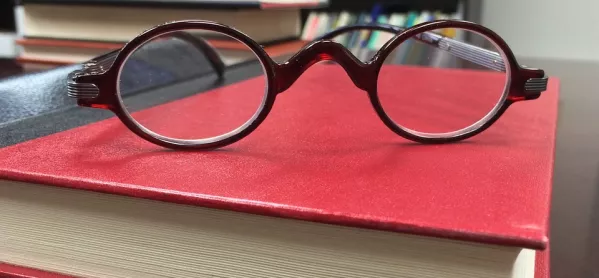Pupils in 100 schools are set to will take part in a trial to help improve their maths and reading skills by ensuring they get glasses if they need them.
The Glasses for Classes programme, developed by the University of Leeds and the Bradford Teaching Hospitals NHS Foundation Trust, is aimed at four- and five-year-olds.
Roughly 10-15 per cent of children fail eyesight tests, and of these around a third are not taken to the opticians to obtain glasses.
Because schools are not made aware of this, many children with a visual impairment may be misdiagnosed with reading and counting problems.
Quick read: More EFF research on eyesight and learning
Top tips: How one primary school got into the top 1% for reading
The future: ‘Smart glasses’ for teachers could help students learn
Research has found failing to treat eye undiagnosed conditions like short-sightedness or astigmatism can hamper pupils’ literacy skills.
The Education Endowment Foundation-based (EEF) trial will share the results of children’s eye tests with parents and school staff, who will be trained to help them.
“Poor eyesight in young children can be enormously difficult for parents or teachers to detect, and even where it’s obvious, there is currently no mechanism to ensure vision screening results are ever acted upon,” said Professor Mark Mon-Williams, lead academic from the University of Leeds.
“We believe this project shows great promise and could help the large number of children with visual problems across the country to have a more positive educational experience, and ensure they have the good start in life that every child deserves.”
Sir Kevan Collins EEF chief executive, said: “Making sure all young children with possible eyesight problems are identified and supported with glasses or other treatments is a clear win-win, helping improve health as well as educational opportunities.”
English Mastery, a knowledge-rich curriculum for 11- to 13-year-olds developed by Ark UK is also to be trialled by the foundation, in 110 schools over two years.
It aims to helps English teachers to deliver a curriculum focused on classic texts, grammatical concepts and reading for pleasure.
An earlier and smaller trial of English Mastery, published last year by the Brilliant Club, concluded that, on average, pupils in schools that adopted the programme made four months more progress than similar students in similar schools that did not adopt the programme.
The EEF trial is designed to find out whether similar results can be achieved in a large number of schools. It will also consider whether centralised, coherent curricular can contribute to reducing teacher workload.
Amy McJennett, English Mastery’s Director said: “English Mastery provides teachers with a coherent curriculum that builds year on year. The content is carefully sequenced to help students master the ideas, concepts and stories that have shaped the world.”
The EFF has announced three other school research trials today:
- The 5Rs, an intervention that aims to support students re-sitting their maths GCSEs through a unique revision-year approach built upon structured lessons and a fully resourced curriculum. Eighty post-16 settings will take part in the trial of the programme, developed by the Association of Colleges and co-funded with JP Morgan Chase Foundation.
- REACH Primary, a programme for struggling readers delivered by trained teaching assistants to individually targeted pupils over a period of 20 weeks. Developed by academics at Leeds University, the trial will run with Year 3 pupils in 80 primary schools.
- Peer Assisted Learning Strategies (PALS-UK), a 20-week structured paired reading intervention where Year 5 pupils take turns to act as coach and reader to complete four activities. Developed by Coventry University and Vanderbilt University in the US, 80 schools will take part in the intervention to improve reading fluency and reading comprehension.




